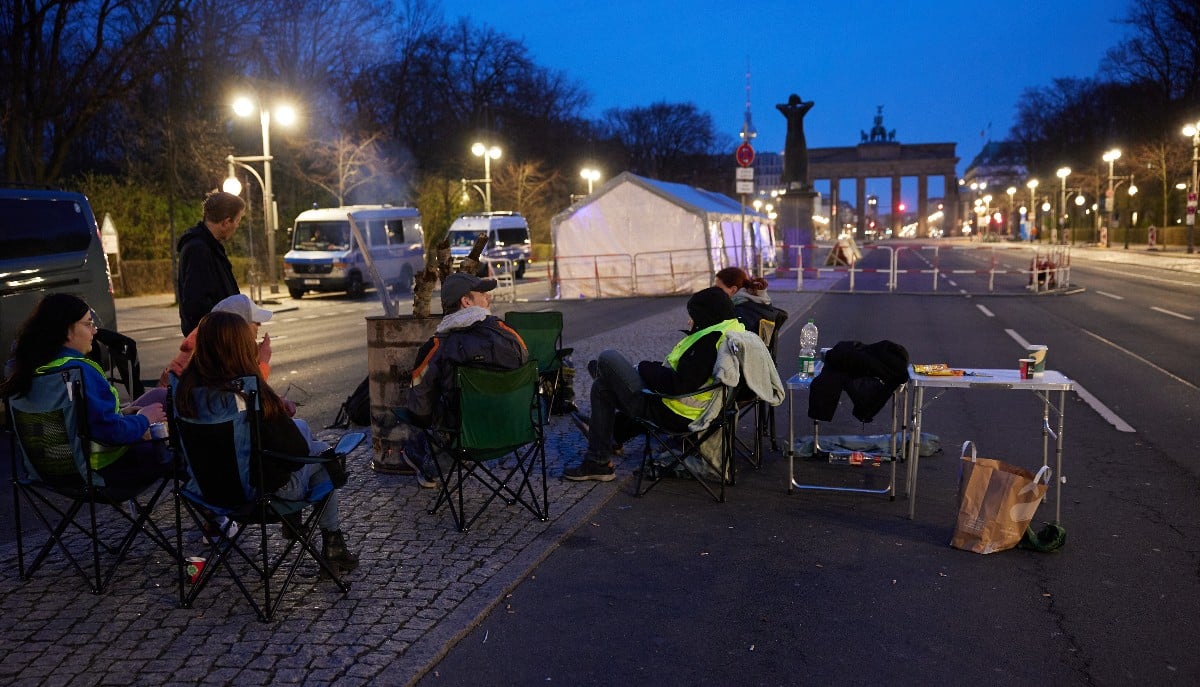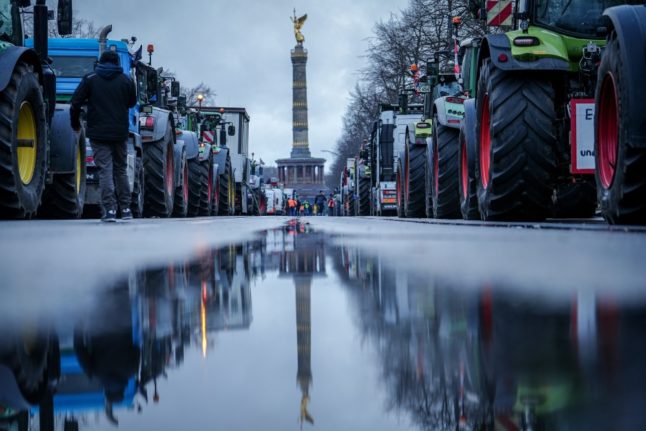Berlin police said there were “considerable traffic disruptions” across the city and the outskirts and especially around Straße des 17. Juni, the government district and the Bundesrat .
Since Thursday morning, Straße des 17. Juni and other streets around the government district in Berlin-Tiergarten have been closed. There will also be closures on Leipziger Straße between Wilhelmstraße and Leipziger Platz through Friday.
A planned rally is due to take place from 12 noon to 5pm on Friday with tractors and lorries around Platz des 18. März, near Brandenburg Gate.
The action is being held to protest the government’s agricultural policies.
It comes as relief measures – including reduced bureaucracy and tax relief for farmers – went to the Bundesrat on Friday to be voted on as part of the Growth Opportunities Act.
However, farmers are still pushing for their original demand of fully keeping the agricultural diesel subsidy.
READ ALSO: Analysis: Why are German farmers so angry?
Farmers in Germany have been staging similar protests against the policies of the government since the start of the year.
Where are protests taking place?
Here’s a look at the routes farmers are expected to take in Friday into Berlin where disruption will occur:
Frohnau: From the state border via B96 Berliner Straße, Roedernallee, Lindauer Allee, Residenzstraße, Markstraße, Schulstraße, Luxemburger Straße, Föhrer Straße, An der Putlitzbrücke, Stromstraße, Lessingstraße, Altonaer Straße and Großer Stern to Straße des 17. Juni
Lichtenrade: From the state border via the B96 Kirchhainer Damm to Tempelhofer Damm and then via Mehringdamm, Hallesches Ufer, Reichpietschufer, Klingelhöferstraße, Hofjägerallee and Großer Stern to Straße des 17. Juni
Mahlsdorf: From the state border via the B1/5 to Alexanderstraße and then via Karl-Liebknecht-Straße, Unter den Linden, Wilhelmstraße, Dorotheenstraße, Scheidemannstraße, John-Foster-Dulles-Allee, Spreeweg and Großer Stern to Straße des 17. Juni
Staaken: From the state border via B5 Heerstraße to Theodor-Heuss-Platz, Kaiserdamm, Ernst-Reuter-Platz, Straße des 17. Juni and Großer Stern to Straße des 17. Juni.
As we’ve already. mentioned, there will also be road closures on Leipziger Straße between Wilhelmstraße and Leipziger Platz.

A large police presence was in place around the federal ministries and parliamentary buildings.
“We are taking preparatory measures before the farmers’ rally so that parliamentary work can take place smoothly on Friday,” said a spokesperson for the Berlin police on Thursday.
During previous demonstrations, tactics – such as throwing manure and blockade attempts – have been controversial.
On one occasion in January more than a hundred farmers blocked a ferry port as Economics Minister Robert Habeck tried to return from a holiday with his wife on the North Friesian island of Hooge.
According to media reports, some of the protestors tried to storm the ferry that the Habeck and his wife were on, preventing the Green Party politician from disembarking and forcing police to intervene.



 Please whitelist us to continue reading.
Please whitelist us to continue reading.
Member comments